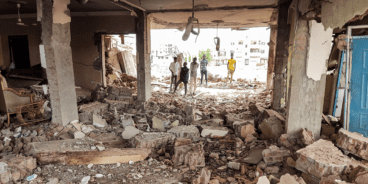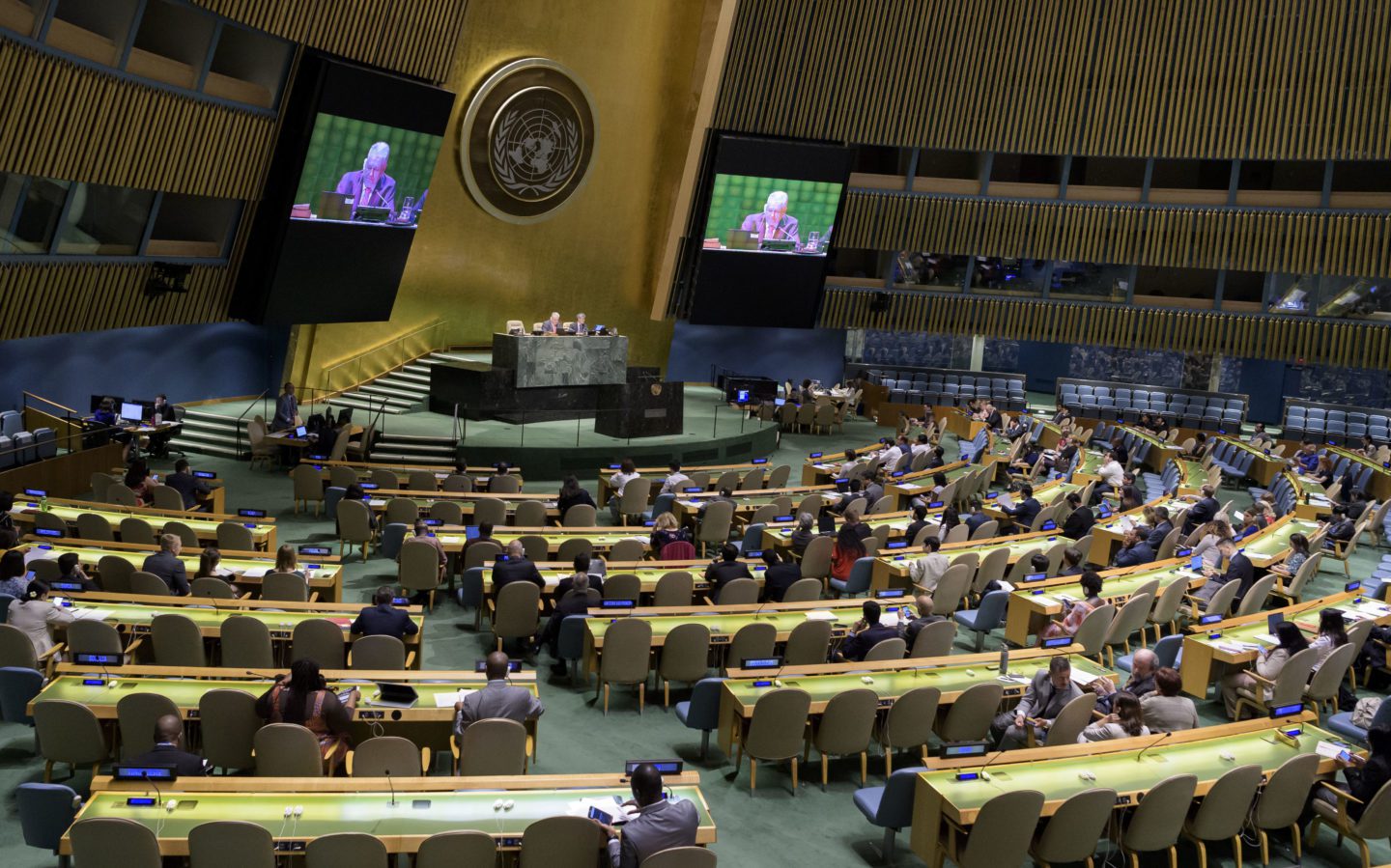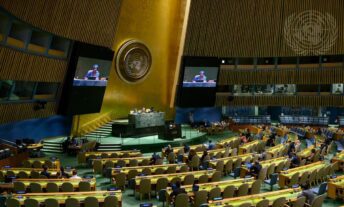
Remarks delivered at UN General Assembly Ministerial Side Event on “Upholding R2P: The Role of Religious Leaders in Preventing Atrocity Crimes”
Remarks delivered by Dr. Simon Adams, Executive Director of the Global Centre for the Responsibility to Protect on 20 September 2016 at UN Headquarters in New York. The Ministerial side event was co-hosted by the Holy See, the UN Office on the Prevention of Genocide and R2P, and the Global Centre for the Responsibility to Protect.
Your Excellencies, distinguished guests, ladies and gentlemen, good afternoon. The Global Centre is honored to co- host this high-level event with the Permanent Observer Mission of the Holy See and the Office of the UN Special Advisor on the Prevention of Genocide and the Responsibility to Protect.
As an individual whose family emigrated to Australia and New Zealand from Northern Ireland I know only too well that history, ethnic identity and faith can conspire to breed division and bloody civil conflict.
When my Aunt was shot dead in Belfast in 1972, there were some who celebrated her death because she was an Irish republican and a Catholic. But I was fortunate to be raised outside the sectarianism and conflict that mapped out my family’s life.
Returning to Northern Ireland I always met people whose politics, faith and sense of community transcended the history of bitter sectarianism and division that had been our shared cultural inheritance.
Those people included Protestant and Catholic religious leaders who played an enormously important role in the Northern Ireland peace process and in ending a violent armed conflict that mapped out my life, but will no longer shape the contours of the lives of my younger cousins, who still live in Belfast.
The United Nations was created 70 years ago in the shadow of Auschwitz, the aftermath of institutionalized anti- Semitism, and the horrors of the Holocaust.
However, over the subsequent decades the international community often failed to live up to the promise of “never again” as we witnessed genocides, for example, in Rwanda in 1994 and Srebrenica in 1995.
In 2005 all heads of state and government adopted the principle of the Responsibility to Protect – a solemn promise to protect populations in all parts of the world from genocide, war crimes, ethnic cleansing and crimes against humanity. And from incitement to commit these crimes.
Despite near universal acceptance of the Responsibility to Protect and deepening institutionalization of the norm over the past decade, in many conflict situations religious intolerance is still used to divide the human family and to foment violence.
Most notoriously, the so-called Islamic State continues to perpetrate atrocities in the name of religion as part of their genocide against the Yazidi, Christians, and other religious minority communities in Syria and Iraq.
Last year at the Vatican I had the opportunity to meet with Gregory III Laham, the Patriarch of Antioch and All the East, and Alexandria and Jerusalem.
When Da’esh attack towns and villages in Syria or Iraq they not only want to kill Christians, Shia, Yazidi and others who don’t share their extremist interpretation of Islam. They want to erase any trace that these communities ever existed. They demolish churches and mosques, desecrate and destroy places of worship and in doing so, attempt to eradicate the mosaic of faith, culture and history that stretches back across the millennia for people of the Levant.
Patriarch Gregory was able to specifically name village after village across Syria where Christians had been systematically expelled or killed by the so-called Islamic State. He told me the names of the ancient churches that had been reduced to rubble, and of the families who had been expelled, dispersed or killed.
Today we are meeting at a moment in world history when 65 million human beings have been displaced by war, persecution and atrocities.
In northern Nigeria, Central African Republic, Burma and elsewhere, complex conflicts and issues of faith, belief and ethnicity are being manipulated in ways that greatly increase the threat of mass atrocities to vulnerable communities. Across Europe the refugee crisis is being exploited by demagogues who also want to fracture European society along religious lines. Only they choose to do so with xenophobia and barbed wire, rather than with suicide bombers and beheadings.
In keeping with the principle of the Responsibility to Protect, religious leaders have an indispensable role to play in mediating conflict.
In Central African Republic we have seen religious leaders promoting tolerance and acting as messengers of peace, despite threats to their own lives and safety. The historic and symbolic visit by the Holy Father, Pope Francis, in late 2015 reinforced this message of hope and contributed to the peaceful elections.
There are many other examples, in South Sudan and across the globe, where people of faith are the voice of compassion and light in a time of darkness and despair.
We are honored to have eminent leaders from the Christian, Muslim, Jewish and Bahá’i communities here with us today. Today’s meeting provides an opportunity to discuss how religious leaders can enhance efforts to prevent mass atrocities.
Related Content


Summary of the 2023 UN General Assembly Plenary Meeting on the Responsibility to Protect
